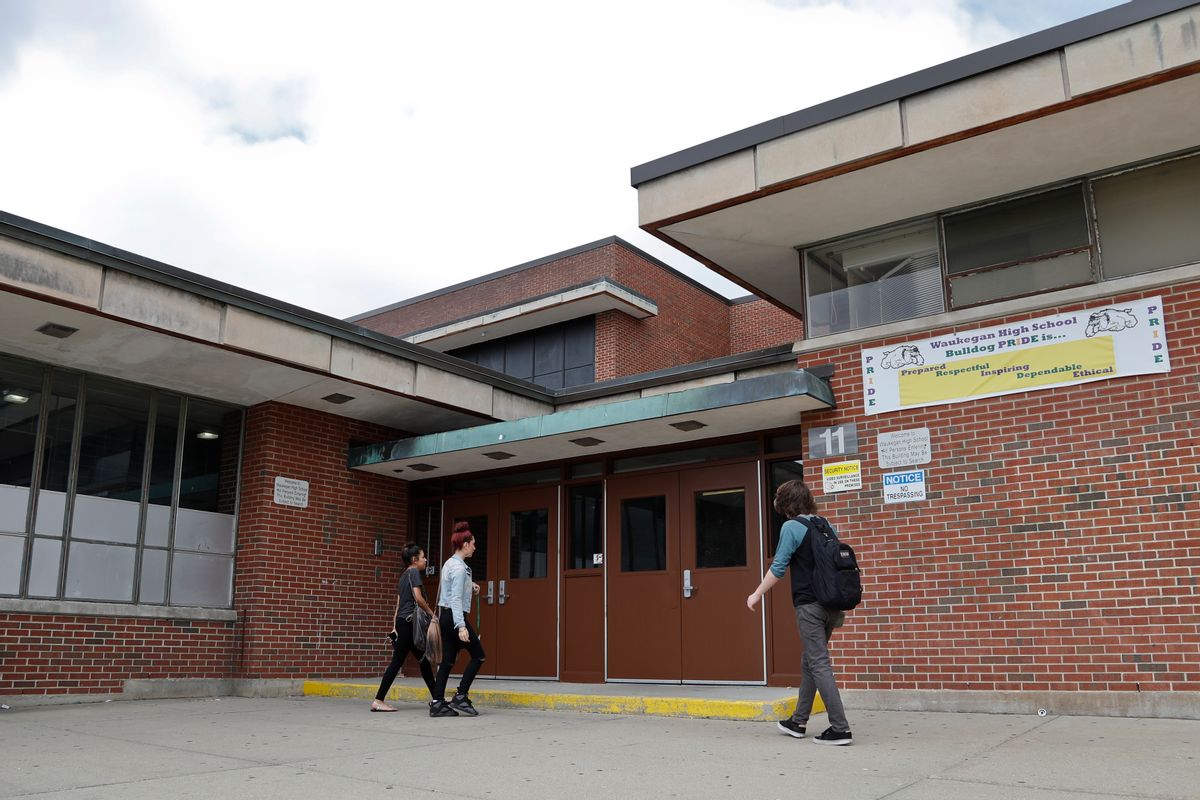As Charlotte, N.C. erupted into racially-charged riots, sadly the conversation hasn’t turned to concrete ways to mitigate the cultural and socioeconomic forces that trap many people of color in failing schools. And once these kids fail in school, this ensnares them in a downward spiral. As the American Psychological Association reports, compared to high school graduates, dropouts are less likely find a job and earn a living wage, and more likely to be poor, suffer from a variety of adverse health outcomes, rely on public assistance, engage in crime and generate other social costs borne by taxpayers.
In Charlotte, the Observer report
While much is reported, analyzed and even sung about the cradle-to-prison pipeline, we have yet to build a successful national agenda for strengthening the nuclear family and expanding school choice — a value cherished nationwide by millions of parents and children, many of them black and brown. Indeed, that’s why the waiting lists alone for charter schools have more than 1 million names.
A case study of these forces is Tanya McDowell, a homeless African-American woman arrested and sentenced to prison five years, in part, for educating her son. Though McDowell had also reportedly engaged in other criminal acts (including selling drugs and promoting prostitution) beyond enrolling her son in a public school, her case represents an appalling coalescence of the forces underlying the racial tensions not only in Charlotte but in Baltimore, Ferguson and elsewhere.
McDowell was reportedly homeless, floating among various homeless shelters and living in a van in Norwalk, Conn., while her young son attended classes at Brookside Elementary School in Norwalk. Because she had no permanent residence in the school district and her last mailing address was in nearby Bridgeport, Conn., she was charged with first-degree larceny and conspiracy to commit first-degree larceny for allegedly stealing $15,686 from Norwalk schools.
If McDowell and her family had access to better educational options, this outrageous case could have been avoided. Bridgeport's schools are among the worst performing in the state, and the city has a poverty rate of nearly 24 percent compared to 15 percent nationwide. Often these schools like Bridgeport with student bodies from predominately challenged socioeconomic backgrounds are chaotic and violent — academic subjects are often the last thing on anyone’s mind. Survival trumps studying, gangs replace peer study groups, drugs and booze supplant the euphoria and endorphin release of team sports and other extracurricular and artistic activities.
I experienced some of this chaos firsthand as a middle school student in the troubled public schools of Kansas City, Mo. — a system so awful it was stripped of accreditation by the state of Missouri. Before school began, my classmates and I spent hours lined up outside the buildings, waiting for metal detectors and security guards to search our belongings for weapons and drugs. These were majority minority schools, where many students resorting to fistfights, sometimes even threatening teachers and other school officials. Schoolwork was an absolute joke.
So, given the choice between schools like this and better alternatives like those in Norwalk, it’s no wonder that McDowell wanted something better for her son. She is one of millions of parents who are squirming to get out of the straightjacket of failing schools. In New York City, for example, the vast majority of teachers receive high personnel assessment rankings from administrators even as many incompetent teachers are protected by unionized rubber rooms. Bad teachers are shielded from accountability because adult union leaders want to protect teacher tenure more than they want to educate children.
Rather than empowering parents to choose to send their children away from failing schools, sadly, it is the teachers unions who so often block school choice, threatened by competition. These teacher union machines have created a toxic feedback loop with Democratic politicians who shield schools from true reforms, including curriculum changes that would better equip students with the STEM skills of the future. While they are far from a panacea, charter and parochial schools offer creative and substantive alternatives to the ills of Bridgeport — and, yes, Charlotte.



Shares